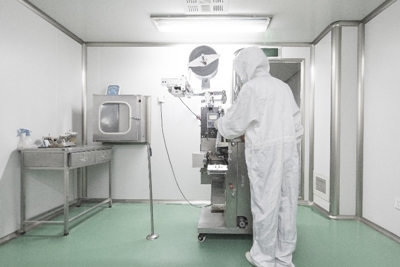NEWS 2017-07-31
Digitalization: The Inevitable Future of the Pharmaceutical Industry
The healthcare industry is at an all-time-high of technological improvement. The core disciplines involved in the Pharmaceutical Industry are no exception to this. Drug development and patient care are already taking advantage of these changes.
The era of conventional, small-molecule blockbuster drugs is coming to an end. There is a current shift of focus towards biomedicines, orphan drugs and advanced medical devices. Also, global and heterogenous regulations are increasing, bringing more complexity in product supply infrastructures and operations. For instance, the US FDA envisions quality manufacturing with less regulatory oversight which in the future is expected to create completely new kinds of requirements in product supply capabilities and systems.
As trends show, the Pharmaceutical Industry is currently experiencing major changes in the whole product life cycle form early product development to manufacturing and patient care. The following challenges in pharmaceutical operations are driving the transformation of the field:
- Healthcare Market Challenges – innovations and competitions from other fields, price pressure by tightening regulations, patent expiration of blockbuster drugs, demand for better medication safety and quality of life data, new business models
- Complex Regulative Requirements – diverse regulations, new vision of US FDA for the 21st century: efficient, agile, flexible pharmaceutical manufacturing that reliably produces high quality drugs without extensive regulatory oversight
- Operational Challenges – highly distributed and unstandardized global production
Due to these challenges, the move towards digitalization is almost inevitable and is expected to include not only pharmaceutical products but also business models, operations and even patient care.
A study by a pharmaceutical engineering firm NNE suggests that future perspectives of successful pharmaceutical manufacturing has shifted focus from site-stability to site-agility. With this shift is the inclusion of requirements for a flexible production process, balanced and integrated quality systems and ability to quickly absorb new practices.
Currently, the US FDA is in the process of creating a digital unit that will validate software intended for clinical application. The separate unit will target patient care software that involve artificial intelligence, advanced analytics, cloud, wireless capabilities, telemedicine and cybersecurity. Such capabilities will clearly open major opportunities for pharmaceutical companies to develop their systems and cope with digitalization. With it, there is an additional challenge of establishing protocols and validating new processes.
The ultimate goal of digitalization is to push for a more patient-centric pharmaceutical practice. This may be the biggest change the field will face since the rise of modern medicine in the 19th century and the shift towards automation in the 1980s. As past experience suggests, companies that are most responsive to change are likely to be the future key-players of the industry.
References:
European Pharmaceutical Review, 2017. Pharma Digitalisation: Challenges and opportunities in transforming the pharma industry. Accessed July 23, 2017 from www.europeanpharmaceuticalreview.com



